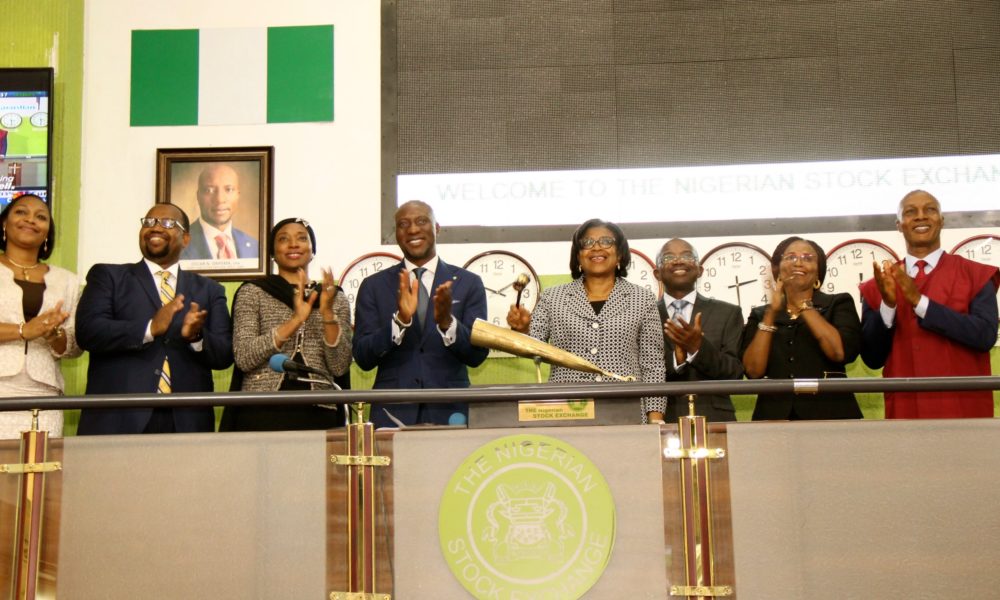Nigerian Exchange Limited
Nigerian Stock Market Kicks Off The New Year On a Positive Note As Investors Takes Home N187 Billion

Investors pocketed N187 billion on the very first day of trading on the Nigerian Exchange Limited (NGX) as investors confidence returned at a gallop.
Market capitalisation rose to N28.102trillion while the NGX All-Share Index increased by 1.89% from 51,251.06 index points it closed in December 29, 2022 to settle at 51,596.66 index points on Tuesday.
In the first day of trading, investors traded 321.6 million shares valued at N4.3 billion in 4,122 transactions.
Further breakdown showed that BUA Foods led gainers with 10% to close at N71.50 while John Holt followed with 9.59% to settle at 80 kobo a unit. Prestige, Nahco and UBA expanded by 9.59%, 9.37% and 9.21% to N0.46, N7 and N8.30, respectively.
On the other hand, Chellaram led losers with 9.8% to close at N2.02%. CWG followed with 8.91% to settle at N0.92%. FCMB, Honeyflour and Japaul Gold declined by 3.57% to N0.27 a share.
In terms of volume of trade, FBNH led with 15.116 million shares. GTCO came second with 13.756 million and AIICO trailed them with 12.241 million.
The three top trade by value were Nestle, GTCO and Dangote Cement with N515.997 million, N318.207 million and N198.264 million.
A research conducted by Investors King revealed that NGX All-Share Index grew from 42,716.44 index points to 51,251.06 in 2022, representing an increase of 19.98%.
The market capitalisation of all listed equities also expanded to N27.397.06 trillion, an increase of 25.20% when compared to N22.296.84 trillion it closed in 2021.
The oil and gas sector led gainers with 34.05% annual gain. The Industrial sector followed with 19.67%. The Consmer goods sector was the only loser in 2021. Closing at -0.06%.
According to the Vice president, Highcap Securities Limited, Mr, David Adonri , “the stock market appreciated at the beginning of the H1 2022 due to the impressive 2021 full year and Q1 2022 results released by listed companies.
“The rising crude oil price also enhanced the performance of stocks. However, the market slowed down in June due to unfavorable domestic factors which the rising crude oil market could not offset.
“These were the rising inflation rate, hike in the interest rate and excruciating energy crisis. As the political risk associated with the 2023 general election heightens and the possibility of a further hike in interest rate looms, economic fundamentals may not be strong enough to engender further market growth.”